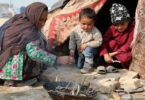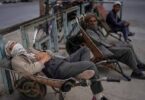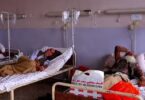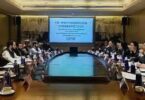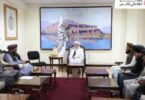Monitoring Desk
GARDEZ: As many as 457 civilians suffered casualties, including women and children, in southeastern Paktia, Paktika and Khost provinces in 2018, the Independent Human Rights Commission (IHRC)’s regional office said.
Noor Ahmad Shahim, IHRC regional office head, told Pajhwok Afghan News the causalities occurred as a result of Afghan and foreign forces airstrikes and Taliban operations and bomb blasts.
According to Shahim, most of the casualties resulted from suicide bombings and roadside blasts, carried out by Taliban militants, in civilian populated areas and their use of people’ homes as bastions. He said: “Last year, 457 people, including men, women and children suffered casualties across the southern zone and most of the perpetrators were Taliban militants.”
On the other hand, people urged the government and the Taliban to pay special attention to civilian lives and properties during their military operations and fighting.
M. Musa Mustafa, a resident of Zahoo locality of Gardez, the provincial capital, said the government should take care while conducting ground and air operations and urged the Taliban not to use people’s homes for attacks on security forces.
Ghulam Mohammad, a resident of Mamozo locality of Zurmat district, who lost his two brothers and three nephews to nighttime operations, demanded an end to the ongoing conflict. “My three nephews and two brothers have been martyred, each day people are killed, for how long the bloodshed will continue, the people need peace and an end to the war.”
M. Rahman Qadari, Paktika provincial council member, said civilian casualties had lately increased due to lack of coordination and intelligence information among security organs. Qadari urged the warning parties to pay attention to people’s lives and properties.
According to him, security organs’ coordination remained only on paper and they showed coordination only in front of the governor and the president. He said security forces did not share information with each other due to personal grudges.
Abdul Wali Sahi, the deputy governor, said saving civilians’ lives and properties was security forces’ top priority and in most cases security forces attempted to avoid casualties to people in their operations.
However, Zabihullah Mujahid, a Taliban spokesman, rejected the fighters had inflicted causalities on civilians. Mujahid said they noticed no security incident during the past one year, in which a large number of civilians had suffered casualties from their side.
“But when our fighters stay at night at someone’s home, security forces raid the home, so it is a raid on civilian homes.”
Casualties in the southeastern zone decreased by 50 percent in 2018 compared to 2017 casualties, when about 850 people were killed and wounded. (Pajhwok)

